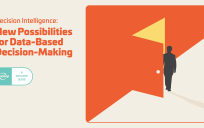To write GovFem articles, we scour the internet everyday for the newest and best articles and op-eds about women working in the public sector. While many of those articles end up in our GovFem posts, we unfortunately can’t cover them all in the weekly series. That’s why we created the GovFem Reading List, which highlights the top posts from around the web each month.
This May, articles covered topics as varied as female representation on panels, lessons learned from crises, and biased data. However, each article emphasized the ability for change and progress, even in the face of challenges. Here are the top five articles worth reading from this past month:
1. Dude, Where Are The Women? #AllMalePanels In Global Development
Women’s issues are a key part of the agenda in the international development and aid sector, and a 2009 survey showed that women made up 75% of the nonprofit sector in the U.S. Despite this, many panels in this sector do not reflect this makeup. The lack of female perspectives can be send the wrong message and lead to short-sighted policies. So what can we do about this? Check out this article to find out what approaches organizations are taking and what challenges they face.
2. U.S Secretary of HHS: What The Ebola Crisis Can Teach Us About Zika and Flint
The Secretary of Health and Human Services, Sylvia Mathews Burwell, has had a lot to deal with during her tenure: the Central African refugee crisis, the Ebola outbreak, the opioid epidemic, and more. However, these challenges have taught her important lessons about how to deal with crises. Her advice spans professional and personal spheres, reminding us that even our challenges can be helpful.
3. Here’s Why It’s Up To Women to Save the Global Economy
Many depictions of the global economy paint a grim picture. Debt is growing for governments and consumers; income inequality is reaching dizzying heights; and productivity is declining. Economists have a potential solutions, though: women. According to a recent report, if women could “’participate in the world of work to an identical extent as men,’ the global economy would be $28 trillion richer than it is poised to be in 2025.” Investing in women in the workforce, while often costly, improves the global economy.
4. Current Data Is ‘Sexist,’ So Bill And Melinda Gates Are Funding Research To Help Women
In many ways, data drives the public sector. When relevant data isn’t available, governments and other organizations have trouble identifying areas in need or evaluating the success of the current programs. Areas like intimate partner violence and female economic contribution suffer from a lack of data, which leads to a lack of programs and services in those areas. Melinda Gates is working to make data less “sexist,” as the Gates Foundation commits $80 million over the next three years to gathering new data across the globe.
5. Female firefighters still get harassed by misogynistic co-workers. Why is that okay?
Our emergency services workforce helps people at their most vulnerable, which makes the stories of sexual harassment that emerge from these forces all the more disturbing. Getting to the bottom of this issue means addressing the actions of firefighters and other first responders as well as the leaders who condone those actions. A cultural change is needed, and advocates are fighting for it every day.
And in case you missed them, catch up on this month’s GovFem posts:

Every month, GovFem compiles a list of the top articles about women in government from around the web. If you have an article you think should be included in next month’s reading list, email [email protected] with your suggestions.



Leave a Reply
You must be logged in to post a comment.